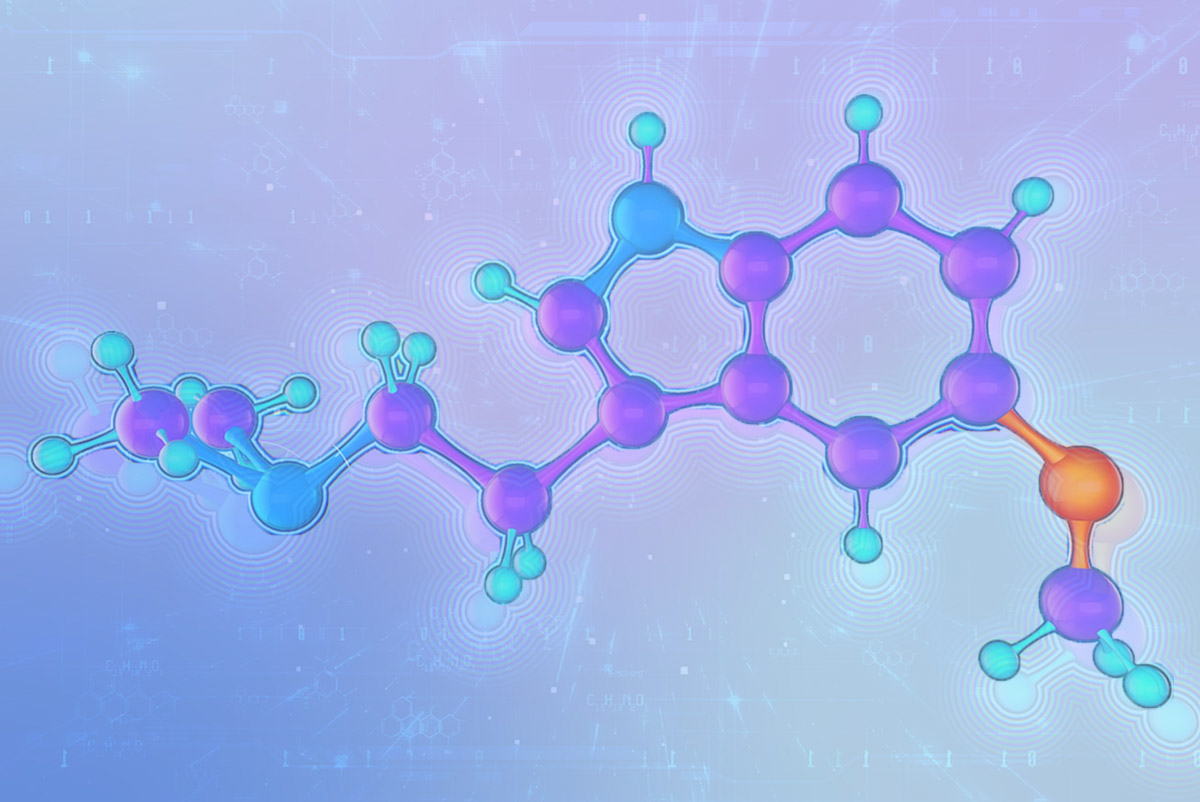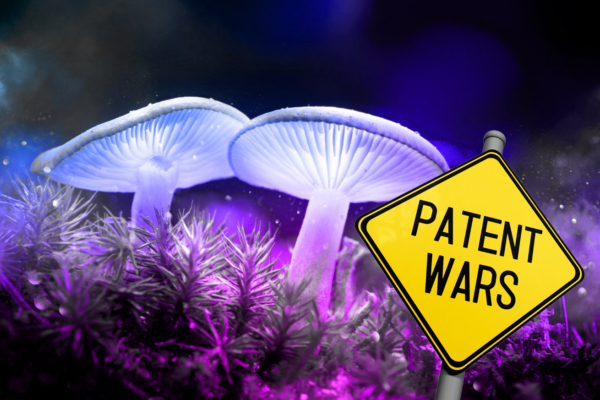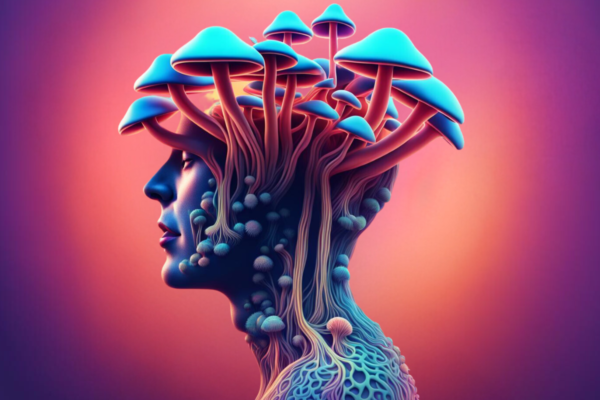
When it comes to analyzing psychedelic stocks and the companies behind them, few are as interesting to me personally as Small Pharma (TSXV: DMT, OTCQB: DMTTF).
I originally became fascinated in the topic of psychedelic medicines, before I ever considered investing in psychedelic stocks, through learning about the mysteries of DMT, sometimes referred to as the Spirit Molecule. This is a compound which is capable of taking your consciousness to different realms, where you often meet seemingly autonomous beings with whom you can communicate. Furthermore, anecdotally, many report lasting mental health benefits from embarking on this psychedelic journey.
As Small Pharma’s Canadian ticker symbol suggests, the company is all about DMT. They recently completed the world’s first Phase 1 clinical trial on the substance, and found it to be safe. Furthermore, there were “no statistically significant negative effects on anxiety and well-being identified at any point during the three-month follow-up”. This trial excited me so much, I recently included it in a list of the 5 Most Influential Psychedelic Studies. Currently, the company is undergoing a Phase 2a study using the substance to treat Major Depressive Disorder.
Again, a world first.
DMT is exciting as a potential medicine since structurally, the molecule is similar to psilocybin, which has shown great promise in treating depression. However, the DMT experience only lasts around 10-20 minutes, as opposed to the 6-plus hour psilocybin experience. As one of the core problems with using psilocybin as a medicine is its long duration, if DMT proves to be equally as effective, it could be the superior medicine.
Small Pharma actually has (at least) 2 versions of proprietary DMT that they are testing, SPL-026 and SPL-028.
SPL-026 is the compound tested in their Phase 1 and 2a trials. This is an intravenous DMT, which is more or less the same as the original molecule. The “proprietary” aspect of it comes mostly from the formulation method of the drug. Recently, Small Pharma has received an “Innovation Passport” from the British government, which essentially allows Small Pharma to move more quickly through the regulatory framework of having a new drug approved.
The near future for SPL-026 is exciting. First, the public should get a readout of the topline data of Small Pharma’s Phase 2a trial treating Major Depressive Disorder in the first half of 2022. This will be the first clinical evidence that we have regarding DMT’s status as a medicine. Furthermore, Small Pharma has two more Phase 1 studies planned for this year using the compound. The first will test the safety of taking DMT while on SSRIs, a common depression medication. This is important, as we need to know whether psychedelic medicines such as DMT are safe to be used in tandem with current medications. The next is a comparative delivery method trial, testing whether it is safer to deliver SPL-026 intravenously or intramuscularly.
As exciting as SPL-026 is, long-term, Small Pharma’s SPL-028 has the potential to be bigger for the company. SPL-028 is a next-generation DMT, which has a longer duration of effect than the original. Whereas a core issue of psilocybin is that the experience is too long, the opposite problem may hold true for DMT. At max 30 minutes, it is possible that patients would need a longer experience to gain the full benefit that DMT has to offer (though this is speculation, we would need to see this born out in clinical trials). Perhaps the optimal duration is somewhere in the 2-hour range. Either way, first we will need to ensure that the compound is safe in humans, which Small Pharma will test in a Phase 1 trial this year.
On the financial front, the company seems to be in a good position. They have $45.6 million CAD in the bank as of the end of Q3 2021. That same quarter, they spent $4.63 million. As is the case for most psychedelic medicines companies, they are still pre-revenue. Doing some rough back of the napkin math, if the company holds spending steady (which of course is unlikely, costs will likely rise as they scale), they have enough money to continue funding themselves for around two and a half years without having to raise more capital.
As Small Pharma’s market cap sits at just shy of $80 million CAD at the time of writing, the company currently trades at less than a 2-1 ratio of market cap to cash on hand, which I must admit is quite appealing.
Despite the many reasons to be excited, there are of course risks to the company as well. These risks are primarily due to competition, on several fronts.
To begin, competition between psychedelic molecules. While I find DMT to be mysterious and exciting, there is as of yet no proof that it is a more effective medicine in treating conditions such as depression than compounds like MDMA, ketamine, psilocybin or LSD. Even if DMT is effective, it will have to be at least equally as effective as other psychedelics for it to be a viable treatment option long term. We will have to wait a couple years to see the results of many clinical trials before we can make this determination.
Next, is competition among companies working on DMT. Though Small Pharma has the most advanced clinical pipeline when it comes to DMT, other companies are nipping close on their heels. This includes heavyweights in the industry such as MindMed (Nasdaq: MNMD, NEO: MMED) and atai Life Sciences (Nasdaq: ATAI), both of whom have either started or plan to start Phase 1 DMT clinical trials. Just because Small Pharma is currently ahead doesn’t mean they always will be.
And finally, are financial risks. Even though Small Pharma currently has a strong cash position, eventually, they will have to commercialize their DMT and begin earning revenues and profit. Though every company in the psychedelics space will have to do this, it will still be a difficult process. It is still unclear whether there will be lots of winners in the psychedelic medicines race, or only a handful, companies who have created the most effective next-generation medicines.
Of course, as mentioned, every psychedelic medicines company will have to deal with this, so it is not meant to be a knock on Small Pharma specifically. Still, it is something to keep in mind when considering an investment in the company.
When combining both the potential and the risks for the company, Small Pharma is certainly an exciting candidate for a psychedelic medicines investment. Plus, their relatively low market cap when compared to behemoths like atai and MindMed (at $888 million USD and $496 million respectively) means that if they are successful, the payoff will be much larger.
But what do you think? Leave us a comment below with your opinion on Small Pharma.





